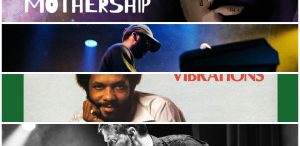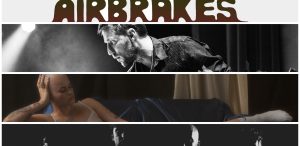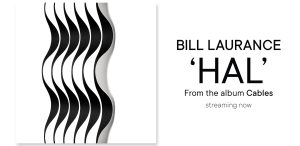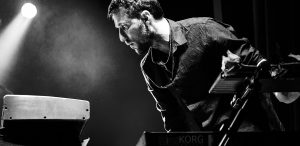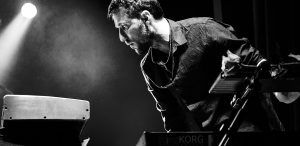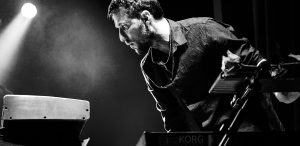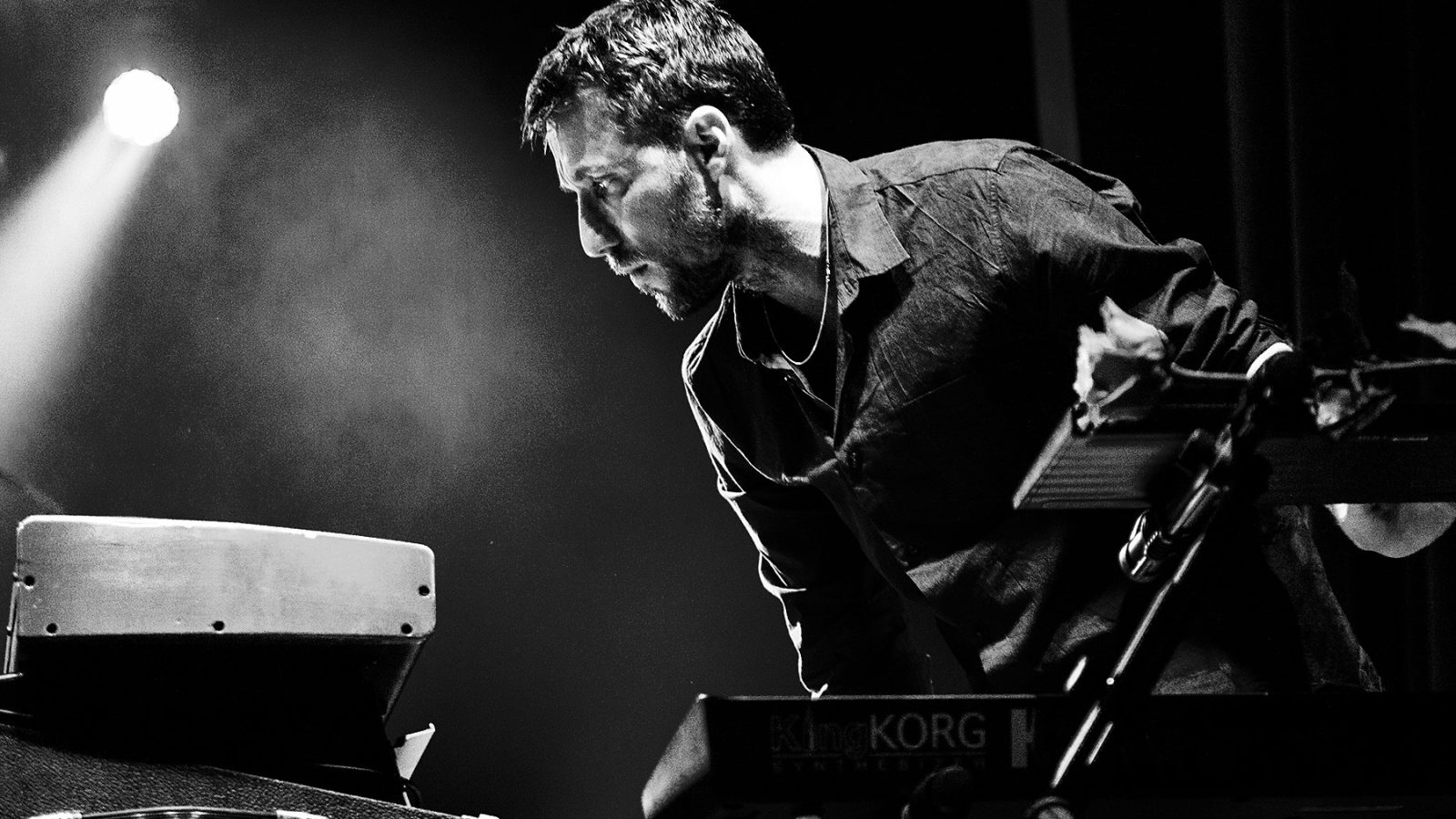
Bill Laurance on the thrill of solo performance and his new concept record, Cables
Courtesy of his work with the GRAMMY award-winning outfit Snarky Puppy, his four albums as a bandleader and his numerous collaborative and session appearances, Bill Laurance has come to be regarded as one of the finest pianists a contemporary ensemble could hope to have. Yet surprisingly, as a skilful player of an instrument with broad sonic capabilities and a long history as a vehicle for solo expression, it is only now that he has chosen to embark upon a solo tour with it, supporting what is his first entirely solo album, Cables.
Bill’s bold, creatively-motivated move into solo territory is just one of several recent developments in the London-based artist’s career. He has also established his own record label, Flint Music, and got his first film composition credits under his belt. While his allegiance to ensemble work has by no means diminished (he has a trio EP in the works and will be joining his Snarky Puppy bandmates in November for their UK tour), he is for now revelling in the challenges and freedom that solo artistry affords.
Ahead of his three solo dates at the Liverpool Philharmonic Music Room, Leeds College of Music and Stoller Hall in Manchester, we caught up with Bill to discuss the emotions performing solo with a piano and array of electronic accessories can bring, as well as touching upon the musical firsts that make this an exciting time in his career, alongside the significant questions that make this an important time to be a vocal and engaged artist.
Having played in bands for much of your professional career, what have been the most rewarding and challenging aspects of making an entirely solo album and performing an entirely solo show?
Bill Laurance: “I guess, initially… I wanted to set myself the challenge of going it alone and seeing what would happen if I tried to do everything by myself. It started as a solo piano album, then as I started exploring it, I realised that I wanted to see what would happen if I expanded the solo piano platform into manipulating the piano. Then that led me to adding keyboards as well. I just wanted to set myself that goal post. Then, in going into it, I found that a lot of rehearsals would end up with me reading manuals and tweaking pots, as opposed to actually playing the instrument, which is its own challenge, but certainly performing, I’ve found that there’s a freedom when playing solo that’s unlike anything else I’ve ever experienced.
“It was a revelation that suddenly became kind of addictive”
I didn’t quite anticipate the depth of that experience. It’s probably one of the most profound performance experiences I’ve ever had in terms of the potential freedom, and particularly in terms of improvisation, because ultimately you can go anywhere at any point. You can turn left or right and you don’t need to cue a bass player or a drummer. So that level of focus called upon a part of my performing self that I didn’t know existed before. It was a revelation that suddenly became kind of addictive. Now, because it’s just me: it’s all on you, it’s all on whatever you bring and whatever mood you’re in, so that level of demand feels really healthy”.
You’ve been allotting time to an improvised piece in your recent solo sets. Can you tell us about how Herbie Hancock influenced you to do so and what your thoughts are on the importance of being in the moment, creatively speaking?
BL: “Yeh! I was playing with Snarky Puppy in Los Angeles and bizarrely enough, I was sharing the same catering as Herbie Hancock and Wayne Shorter. We were supporting them at the Walt Disney Concert Hall in LA, so it felt like the right opportunity to say hello. I sat down next to him [Herbie] and we instantly started talking about Buddhism. He explained how improvisation had led him to Buddhism in this aspiration to basically be 100% in the moment, all the time. That’s basically the goal: to be present and not worry about what just happened or what will happen. He asked if I wanted to do some chanting after the show… chanting with Herbie, you’ve got to be kidding! That sadly never happened, but the idea alone was enough!
So every night I’ve been doing these free improvs — a completely blank canvas — and just trying to capture the moment. It has been cool and ultimately, as I’ve learnt with Snarky Puppy and my own stuff, I find what audiences really want to come and witness and experience is that moment that is never going to be the same again. That’s the live experience, that’s why you go to a gig. I’ve seen how important it is to try and capture the vulnerability, because it’s the vulnerability that people seem to respond to, I think, to feel like you’re actually in it with the musician and that they’re up there on stage, taking a risk. It’s important that the whole room feels like they’re in it in that way.
Initially it was just free improvs, but then I thought it might be cool to try and put a title on it: so I’ve started doing ‘Brexit’ improvisations… basically improvising on the subject of Brexit. I have absolutely no idea where I’m going and what’s going to happen. Actually, that’s quite useful as it [Brexit] becomes like a map, a guiding force, so it might start angrily and end solemnly, depending on how I’m feeling [about the subject] that day.”
Matters like climate change and Britain’s exit from the European Union, as you mentioned, have been at the forefront of your mind of late. Having spoken with audience members and people you’ve met on your recent travels in Europe, have their views informed your feelings on these issues?
BL: “Yeh, 100%. I’ve been saying on stage: I feel very privileged to be doing something that allows me to travel and to meet people from all over the world. Every day I’m in a new country, speaking a new language, eating a new food… but what’s kind of amazing is that you’re reminded on a daily basis of ultimately how similar we all are. We all have the same aspirations and to be reminded of that first hand is really quite a powerful thing. You could be in South Korea or Chile, and people want the same musical experience…it’s wonderful to be reminded of the universal power of music.
Also, I think now more than ever that it’s important to be active about this stuff. There are things I’ve shied away from in the past, but now I feel like it’s part of the responsibility of a musician to raise these things and be more active. It’s passivity that has led us to Brexit, Trump… so we have to be more engaged”.
Nic Hard is one of the lesser-known figures involved in your recording process, both with Snarky Puppy and as a solo artist. How important were his contribution to Cables, given the way in which you created it and the challenges that dynamic posed? Has he made you think differently about the properties of a production and sharpened your ear?
BL: “Nic has been integral with this record more than any other. He’s mixed all my previous records. When we first started talking about the album, I was saying that I was really fascinated by this dystopian concept of being consumed by technology and how much it is taking over without us really realising, so he suggested this film called Transcendent Man that I should watch, about this guy called Ray Kurzweil who is an inventor/entrepreneur. It’s basically about his somewhat premature prediction that we would’ve invented a conscious robot by the year 2029. I watched it and it completely blew my mind and seemed to sort of encapsulate everything that I’m talking about with this album, which is really focussed around the exponential growth of technology.
Nic recommended that, I watched it and then we talked about it. We started shaping the album around the concept of technological growth, so off the back of that, he came on board as a co-producer. Nic was a big part of that in terms of introducing different sonic possibilities and ways we could interpret this world. In light of the technology thing and what I’m trying to do: I’d shape the album it to be a sort of audio Virtual Reality experience. I want you to put your headphones on and go to another world basically.
There was another documentary called ‘The end of scarcity’ which is another track on the album. We took a quote from that, wrote it into Google and got the Google machine to dictate it, which was Nic’s idea”.
You’re using found sounds and field recordings on the new album. Can you tell us a little about the origins of some of those recordings, and the role they play in your mind when it comes to capturing a mood or setting an undertone.
BL: “I think in a way, a lot of it came later. We’d set the tone of a song and then ask: ‘OK, what do we want for this?’ For example, The Keeper, I was really wanting to give the sense of a starting point, the start of a journey with the moral being: ‘if you keep searching for what you’re looking for, chances are you’ll eventually find it.’ I quite liked the idea of starting that song, and eventually the album, with the sound of kids. Nic had a recording he’d had from his kid’s primary school and so we threw that in and it feels like it represents that start of things: a first chapter, the beginning of school… so that came in in that way”.
Is this a first time for you incorporating these types of creative techniques?
BL: “Definitely, this is like my first concept album I suppose, so within that, I was really keen on reinforcing that world and that concept, which was very much about finding these sounds that were going to create that world and just going into greater detail.
Also, just in terms of the mix as well… for example, we’d record the piano, and smack a chord, then put a ginormous reverb on it, but then just record the reverb and chop it into a pad. That’s what we did on Singularity, that pad at the beginning is just a reverb that has been extended. Just little techniques like that, which again, Nic was integral in”.
What are your aspirations beyond the release of Cables and your EU tour?
BL: “There’s a WDR Big Band live recording that’s going to be coming out and then I’m going to be putting out a live at Ronnie Scotts trio album in the Autumn. The next Flint studio project will arrive in 2020. There’s talk of a couple of film projects, after the David Crosby film got to Sundance. I have also done a score for another film, called Initials S.G., which was a result of my Sundance Skywalker Ranch experience last summer. I was paired up with some filmmakers and have done a sort of Taxi Driver-style score for that. We’re also hoping to do an arrangement with Sam Davies [The Untold Orchestra] for just piano and orchestra, as part of my tour. We’re hoping to do a little recording there as well, so there collaborations going on”.







